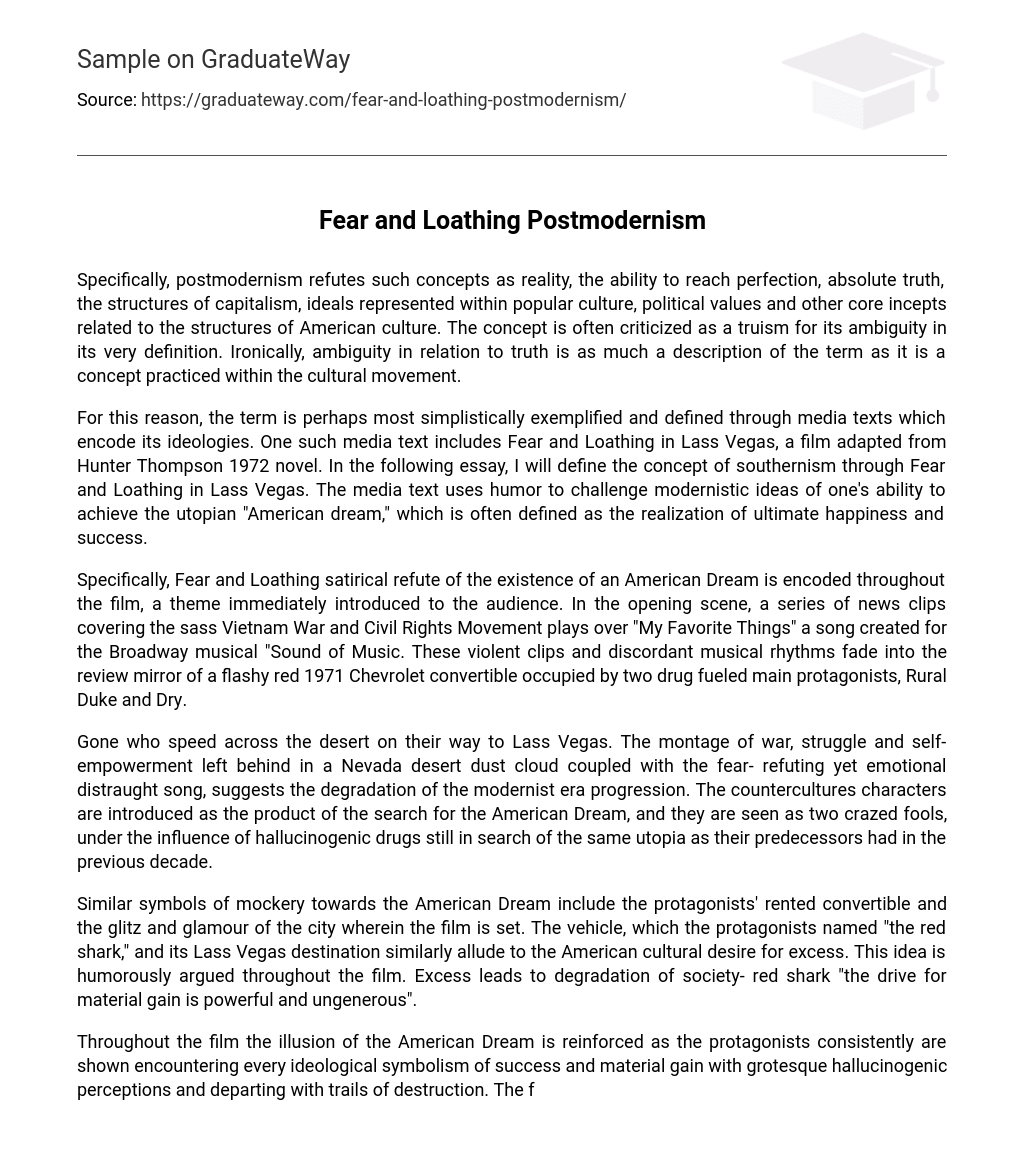Specifically, postmodernism refutes such concepts as reality, the ability to reach perfection, absolute truth, the structures of capitalism, ideals represented within popular culture, political values and other core incepts related to the structures of American culture. The concept is often criticized as a truism for its ambiguity in its very definition. Ironically, ambiguity in relation to truth is as much a description of the term as it is a concept practiced within the cultural movement.
For this reason, the term is perhaps most simplistically exemplified and defined through media texts which encode its ideologies. One such media text includes Fear and Loathing in Lass Vegas, a film adapted from Hunter Thompson 1972 novel. In the following essay, I will define the concept of southernism through Fear and Loathing in Lass Vegas. The media text uses humor to challenge modernistic ideas of one’s ability to achieve the utopian “American dream,” which is often defined as the realization of ultimate happiness and success.
Specifically, Fear and Loathing satirical refute of the existence of an American Dream is encoded throughout the film, a theme immediately introduced to the audience. In the opening scene, a series of news clips covering the sass Vietnam War and Civil Rights Movement plays over “My Favorite Things” a song created for the Broadway musical “Sound of Music. These violent clips and discordant musical rhythms fade into the review mirror of a flashy red 1971 Chevrolet convertible occupied by two drug fueled main protagonists, Rural Duke and Dry.
Gone who speed across the desert on their way to Lass Vegas. The montage of war, struggle and self-empowerment left behind in a Nevada desert dust cloud coupled with the fear- refuting yet emotional distraught song, suggests the degradation of the modernist era progression. The countercultures characters are introduced as the product of the search for the American Dream, and they are seen as two crazed fools, under the influence of hallucinogenic drugs still in search of the same utopia as their predecessors had in the previous decade.
Similar symbols of mockery towards the American Dream include the protagonists’ rented convertible and the glitz and glamour of the city wherein the film is set. The vehicle, which the protagonists named “the red shark,” and its Lass Vegas destination similarly allude to the American cultural desire for excess. This idea is humorously argued throughout the film. Excess leads to degradation of society- red shark “the drive for material gain is powerful and ungenerous”.
Throughout the film the illusion of the American Dream is reinforced as the protagonists consistently are shown encountering every ideological symbolism of success and material gain with grotesque hallucinogenic perceptions and departing with trails of destruction. The films use of light and color similarly degrades the sass’s illusion that Lass Vegas promises its visitors a utopia as the protagonists are filmed in a haze of fading glittering lights and obscured neon colors.





